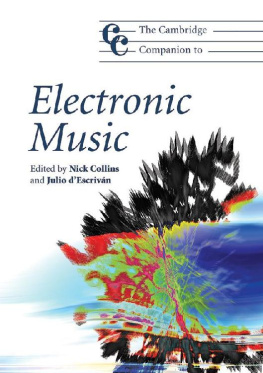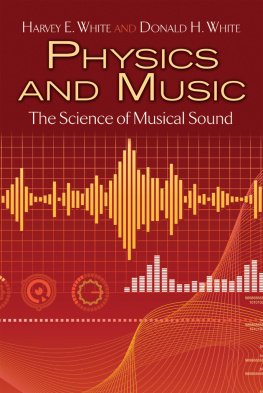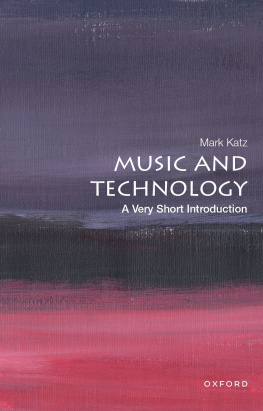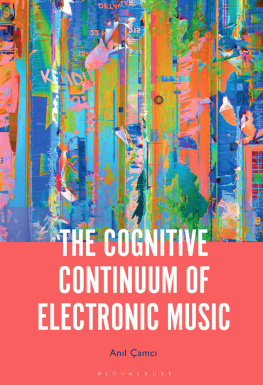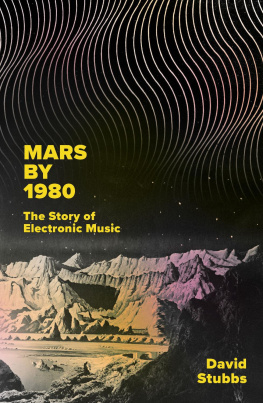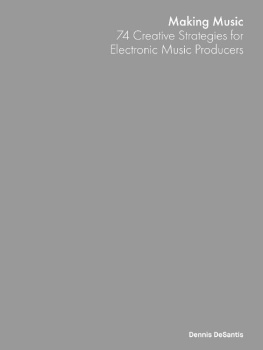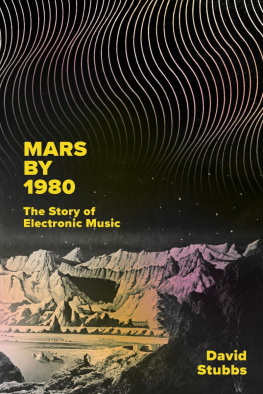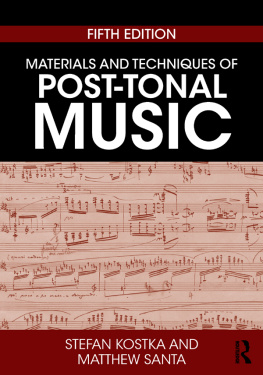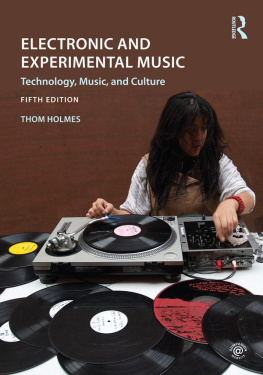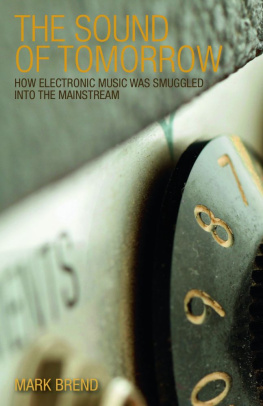The Cambridge Companion to Electronic Music
Musicians are always quick to adopt and explore new technologies. The fast-paced changes wrought by electrification, from the microphone via the analogue synthesiser to the laptop computer, have led to a wide diversity of new musical styles and techniques. Electronic music has grown to a broad field of investigation, taking in historical movements such as musique concrte and elektronische musik, and contemporary trends such as electronic dance music and electronica. A fascinating array of composers and inventors have contributed to a diverse set of technologies, practices and music. This book brings together some novel threads through this scene, from the viewpoint of researchers at the forefront of the sonic explorations empowered by electronic technology. The chapters provide accessible and insightful overviews of core topic areas and uncover some hitherto less publicised corners of worldwide movements. Recent areas of intense activity such as audiovisuals, live electronic music, interactivity and network music are actively promoted.
The Cambridge Companion to
Electronic Music
............
EDITED BY
Nick Collins and Julio dEscrivn


University Printing House, Cambridge CB2 8BS, United Kingdom
Published in the United States of America by Cambridge University Press, New York
Cambridge University Press is part of the University of Cambridge.
It furthers the Universitys mission by disseminating knowledge in the pursuit of education, learning and research at the highest international levels of excellence.
www.cambridge.org
Information on this title: www.cambridge.org/9780521868617
Cambridge University Press 2007
This publication is in copyright. Subject to statutory exception and to the provisions of relevant collective licensing agreements, no reproduction of any part may take place without the written permission of Cambridge University Press.
First published 2007
7th printing 2013
Printed in the United Kingdom by the CPI Group Ltd, Croydon CR0 4YY
A catalogue record for this publication is available from the British Library
ISBN 978-0-521-86861-7 Hardback
ISBN 978-0-521-68865-9 Paperback
Cambridge University Press has no responsibility for the persistence or accuracy of URLs for external or third-party internet websites referred to in this publication, and does not guarantee that any content on such websites is, or will remain, accurate or appropriate. Information regarding prices, travel timetables and other factual information given in this work are correct at the time of first printing but Cambridge University Press does not guarantee the accuracy of such information thereafter.
Contents
Illustrations and figures
Notes on contributors
Amy Alexander is Assistant Professor of Visual Arts at the University of California, San Diego. Her artwork spans the fields of digital media art and audiovisual performance and has been presented on the Internet, in clubs and on the street, as well as in festivals and museums. Her projects include The Multi-Cultural Recycler (1996), the Bot (2000), CueJack (2001), CyberSpaceLand (2003), Scream(2005) and SVEN: Surveillance Video Entertainment Network (2006). She is also a co-founder of the Runme.org software art repository and is active in curating and writing about software art.
Natasha Barrett (UK 1972) works as a freelance composer and performer of acousmatic and live electroacoustic music. Her compositional output consists of works for instruments and live electronics, sound installations, dance, theatre, and animation projects, but all energy stems from her acousmatic approach to sound and its spatio-musical potential. Barretts projects are frequently commissioned from international organisations and her work has received awards in many of the prominent electroacoustic music competitions. In 2006 she received the Nordic Council Music Prize. Since completing her doctoral composition studies in London (1998) she has lived in Oslo, Norway. For more information: http://www.notam02.no/~natashab
Nick Collins (1975) is a lecturer in computer music at the University of Sussex, and has indulged in both mathematics and instrumental composition in the past. His interests run the gamut of topics in electronic music, but particular specialisms include algorithmic composition, live electronica, machine listening and interactive music systems. He occasionally tours the world as the non-Swedish half of the Swedish audiovisual laptop duo klipp av.
Nicolas Collins studied composition with Alvin Lucier, worked for many years with David Tudor, and has collaborated with soloists and ensembles around the world. He lived most of the 1990s in Europe, where he was Visiting Artistic Director of Stichting STEIM (Amsterdam), and a DAAD composer-in-residence in Berlin. He is a Professor in the Department of Sound at the School of the Art Institute of Chicago, and Editor-in-Chief of the Leonardo Music Journal. Recent recordings are available on PlateLunch, Periplum and Apestaartje. His book, Handmade Electronic Music The Art of Hardware Hacking, was published by Routledge in 2006.
Julio dEscrivn is a composer whouses music technology, both for concert music, and in its applications to the moving image. He has twice won prizes at the International Electroacoustic Music Competition of Bourges, France. His electroacoustic music has been recorded, broadcast and performed in Europe and the Americas. He has worked extensively in music for TV advertising, documentaries and film with Margaret sits on the boards some incursions into new media. He is a senior lecturer in music at Anglia Ruskin University, Cambridge.
Karlheinz Essl was born in 1960 in Vienna. Austrian composer, improviser and performer. He studied composition with Friedrich erha and musicology at the University of Vienna (doctorate 1989, with a thesis on Anton Webern). Besides writing experimental instrumental music, he performs on his own computer-based electronic instrument, develops algorithmic composition software and creates generative sound and video environments. From 19904 he was composer-in-residence at the Darmstadt summer courses, and from 19923 he worked as a commissioned composer at IRCAM/Paris. In the period 19952006 he taught algorithmic composition at the Bruckner-University in Linz. In 2007 he will become professor of composition at the University of Music and Performing Arts in Vienna.
Andrew Hugill (1957) is Director of the Institute Of Creative Technologies (IOCT) at De Montfort University, Leicester. Between 1976 and 1980, he studied composition with Roger Marsh at the University of Keele. After university he earned a living as a music copyist and as musical assistant at the Opras de Lyon and Paris. Hugills compositions have been performed and broadcast worldwide. Symphony for Cornwall (1999) used the internet in a ground-breaking way. Hugills research is wide ranging and includes pataphysics, which is rooted in French literature. He is an Associate Researcher of the Universit de Paris, Sorbonne, and his 2006 CD and booklet entitled Pataphysics has received rave reviews in almost every European language.
Sergi Jord (1961), digital luthier (FMOL, reacTable...) and improviser, likes to invent new digital musical instruments without forgetting to make music with them. His music has been released on various labels and compilations (Hazard Records, SGAE, MIT Press...), he has composed for different instrumental setups (including a brass band) and for films, but he prefers the immediacy and volatility of free improvisation. During the 1990s, he worked extensively in performances and installations in collaboration with other artists (La Fura dels Baus, Marcel.l Antnez...). He holds a Ph.D. in digital communication and is a researcher of the Music Technology Group of the Pompeu Fabra University, where he teaches computer music, audio programming, HCI and interactive media arts. He has written many articles and two books, and has given workshops, lectured and performed though Europe, Asia and America.

